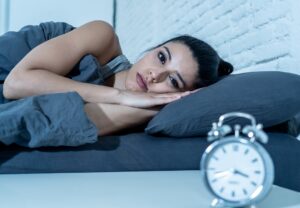 Do you often feel like it takes forever to get to sleep or have trouble staying asleep? If so, you may be at higher risk of stroke. While this is not a diagnosis and should not cause panic, it’s still important to understand the implications of sleep issues and their potential associated risks. With that in mind, let’s look at why having difficulty sleeping can jeopardize your well-being.
Do you often feel like it takes forever to get to sleep or have trouble staying asleep? If so, you may be at higher risk of stroke. While this is not a diagnosis and should not cause panic, it’s still important to understand the implications of sleep issues and their potential associated risks. With that in mind, let’s look at why having difficulty sleeping can jeopardize your well-being.
A new study from Mayo Clinic has outlined the potential risks associated with poor sleep, including stroke. Sleep problems may include too little sleep, too much sleep, difficulty getting to sleep or staying asleep, snoring, and prolonged napping.
Advertisement
Critical for Brain Health
Sleep is critical for overall brain health. Our brains work tirelessly throughout the day, and while we may not consciously notice it, our brain cells work even harder as we sleep. During this period of rest, our brain cells are given the opportunity to repair and restore, ensuring that they remain healthy and viable for years to come.
Adequate sleep also plays a crucial role in maintaining healthy blood vessels in the brain. Without enough rest, our blood vessels can become damaged, potentially leading to long-term health issues. Prioritizing adequate sleep is essential to leading a healthy and fulfilling life.
“When people have sleep-related disorders, such as sleep apnea, they’re getting less sleep or poor-quality sleep. And that leads to reduced oxygen and blood flow to the brain. And that can reduce or make changes over time to the brain, leading to increased risk of stroke or cognitive impairment from vascular disorders to the brain,” says Dr. Stephen English, a Mayo Clinic vascular neurologist.
This new study helps outline the importance of sleep hygiene, diet, and exercise to help reduce the risk of stroke. Following proper sleep hygiene habits include sleeping in a dark room, going to bed at the same time each night, sleeping in a cool room, and eliminating caffeine a few hours before bedtime.
FAST
May is stroke awareness month, so it is a great time to get to know the signs and symptoms of the condition. The American Stroke Association suggests using the acronym FAST to help remember the warning signs.
Advertisement
• Face. Does the face droop on one side when the person tries to smile?
• Arms. Is one arm lower when the person tries to raise both arms?
• Speech. Can the person repeat a simple sentence? Is speech slurred or hard to understand?
• Time. During a stroke, every minute counts. If you see any of these signs, call 911 or your local emergency.
Other signs may include weakness on one side of the body, blurred vision, headache, and dizziness. It is essential to know these signs so you can help to reduce the of stroke.
Promoting Optimal Sleep
As this new study outlines, it is vital to get a good night’s sleep for a variety of reasons. Sleep Sure Plus is designed to help promote optimal sleep and restfulness through a variety of ingredients. One of the most important ingredients included in this unique formula is melatonin.
Melatonin is a hormone that is essential for the regulation of the circadian rhythm (the internal clock of the body). Sleep Sure Plus also contains valerian, one of the best natural ingredients for promoting rest and relaxation. These two essential ingredients are joined by another 6, which all work together to provide a better quality of sleep.
